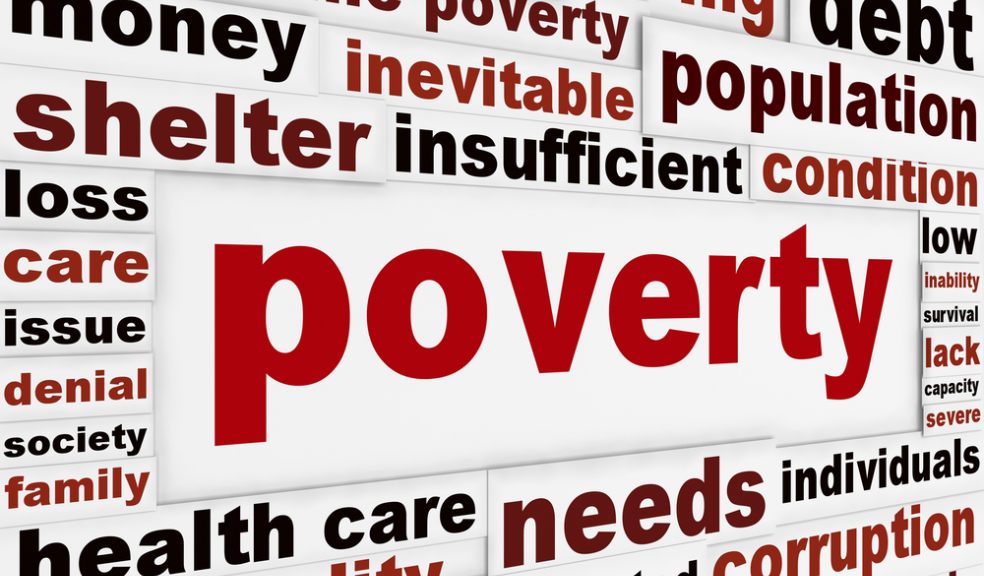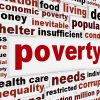
Poverty: Myths & Reality
News about ‘skivers’ and ‘shirkers’ is not news but propaganda. It is convenient for governments – and, indeed, some citizens – to have scapegoats for our economic problems. Stigmatizing selected groups shifts the blame.
Josef Goebbels said, "If you tell a big enough lie and tell it frequently enough, it will be believed."
What are the causes and cures of poverty? Is poverty the fault of the poor themselves? Is it inevitable and intractable? Is employment what is needed to pull a family out of poverty? Isn’t it the case that most of the national welfare budget goes on the unemployed?
Surveys reveal that people think 41% of the budget goes in that direction. Actually, the figure is 3%. 53% of the total social security budget actually goes on old age pensions. Well, isn’t it the case that a lot of that 3% is claimed fraudulently? No. The government figure for benefits fraud is 0.7% of all claims.
The truth is that, as Beatrice Webb declared over a hundred years ago: "Poverty is not due to a weakness of individual character but is a problem of social structure and economic mismanagement."
But, if the unemployed were to get jobs, surely that would solve their financial problems and take them out of poverty? In fact, the present government’s welfare reforms will actually hit people who are in jobs. Many people who experience poverty and rely on benefits are in the jobs, jobs that just don’t pay enough for them to live on.
60% of children who live in poverty are in households where at least one parent is working. Recently, over 90% of new housing benefit claims have come from households with at least one employed adult.
In 2010-2011, there were 300,000 extra housing benefit claimants, of whom 279,000 were employed; the result of the double whammy of rising rents and low wages.
Many people are faced with cycles of low paid jobs: insecure or part-time, taking them in and out of poverty. Some of these become the ‘missing workless’, who do not register as unemployed because of a sense of shame and/or because of the hassles and inefficiencies which are a feature of registration for benefits.
Let’s check out some of the myths. There are hundreds of families where their members have been idle for generations. Teesside University surveyed 330 families in the poorest areas of Middlesbrough and Glasgow. Only one family had seen three generations unemployed.
Large numbers of people have been unemployed for years – the shirkers. The Department of Work and Pensions’ identify 1.3 million people on employment support allowance, less than 1% of whom has been unemployed for ten years or more.
Benefit fraud is at epidemic levels, a huge burden on taxpayers. The level of fraud is around 0.7% of the overall social security budget – about £1bn a year. In contrast, HMRC estimate that tax evasion costs the UK £40bn a year.
Inequality is widening. The rich are getting richer, the poor poorer. The gap between top pay and average wages has been increasing sharply since 1979. The income of those running the biggest companies – the FTSE 100 – has trebled in the past ten years and now stand at 185 times average pay. Yet, one in five workers in the UK is paid below two-thirds of the median wage. As a result, taxpayers are required to transfer £4bn a year in the form of in-work benefits to subsidise low pay.
The average proportion of tax paid by the top 1% of taxpayers was above 60% in 1988. Today it is 45%, the lowest level since the Second World War. The TUC contends that if the minimum wage had risen at the same rate as executive pay since its introduction in 1999, it would now stand at £19 an hour rather than £6.19.
In 2011, the Office for National Statistics reported that 14 million people were at risk of poverty or social exclusion. They also found that the number of people who believed they would be unable to cope with unexpected bills had increased to 36.6%, up for the 29.7% in 2007.
Since April 2010, the use of B&Bs to house (sic) homeless families beyond the statutory six weeks time limit has risen by 800%. There are 1.8 million households on waiting lists for social housing. Over half a million households are living in overcrowded condition in England, and it has been estimated that poor housing costs the NHS at least £600 million per year.
Arch free-marketeer, Christine Legarde, who runs the IMF warned: "I believe the economics profession and the policy community have downplayed inequality for too long."
An HM Treasury distribution analysis of the Autumn Statement 2012 shows that all those living in the bottom half of the income distribution will experience a net loss as a result of the announced measures whilst the majority of those in the upper income brackets will see net gains.
The Institute for Fiscal Studies estimates that by the end of the current parliament an additional 300,000 children will be impoverished by the government’s decision to uprate benefits by 1% for three years, well under the prevailing level of inflation.
The Joseph Rowntree Foundation in 2008 put a figure of £25bn a year on child poverty, a figure comprising lost tax revenues and additional spending to remedy the effects of growing up in poverty.
So, are the poor feckless skivers and shirkers? Are the poor to blame for our economic woes?
What do you think?
Article by Michael Hill-Scott (8 May 2013)
[Author's note: I have drawn substantially on the New Statesman report: Busting the Poverty Myths [2013] in compiling this article]













